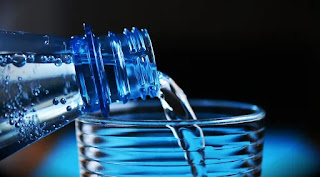Should Medicine Be Taken With Cold Water Or Hot Water
It is very common for patients to ask me if they can take their drug with warm or cold water against the normal portable or tap water. Portable or tap water temperature is around room temperature (20°C / 68°F).
 |
| Water temperature |
The answer to that question is not very straightforward. Water basically acts as a medium of transport for your medicines. It prevents choking and also improves absorption of the drugs in your stomach and intestine.
Before we answer that question, let us look at how water at different temperatures behave after drinking. Water temperature from 0°C to just under 60°C does not cause tissue damage. Most tissue protein denaturing takes place at right around 60°C and certainly higher. Sipping even near freezing cold water quickly warms it up in your mouth so it doesn’t damage tissues by freezing.
Read Also: How To Reconstitute Granules And Powders For Oral Suspension
By the time that the cold or hot water gets down into your stomach, it will be at room temperature to body temperature. Your body temperature is at about 37°C. Cold water will warm up on its way through your mouth and down the esophagus so, by the time it is in your stomach for a very short time, it will be 37°C—just like your internal body temperature. Hot water will cool down quite a bit on the way down and soon be at the same temperature as your body.
You would have to drink an enormous amount of really cold water to depress your body temperature or impact the chemical workings of your stomach. You would probably vomit before you could drink that much. Likewise, while you will experience a little local (stomach) warming by drinking a large volume of hot water, you are not going to have a serious impact on any body functions by doing so.
Impact Of Cold Or Hot Water On Drug
There are different types of drugs ranging from solid, liquid, semi solid and gas. They are all design differently. Some require water why others do not. Tablet and capsules are the drugs that requires drinking water.
Read Also: The Danger Of Drinking Too Much Water
There are different types of tablet and capsules. They are also formulated differently for different purposes. The choice of water and it's temperature can positively or negatively have an impact on the disintegration and dissolution of the drug.
Research have shown that swallowing paracetamol with warm water achieve faster and greater early drug absorption in comparison with a standard tablet formulation. This is because paracetamol tablet is more soluble in hot water but only sparingly so in cold water, which may result in them reaching the bloodstream and being bioavailable faster than tablet formulations, thereby resulting in a quicker alleviation of discomfort.
With this, it is clear that warm water have an advantage. In case of a cough and throat infections, it is advised to take the medicine with lukewarm water. The temperature of water soothes the throat and even speeds the dissolving process. It is obvious cold water is a no here.
Let us take a look at capsules. Capsules are dosage forms that encapsulate an active ingredient (e.g. drug) in a dissolvable shell. The shell is made of hard or soft gelatin or some other form of encapsulation. However, these capsule are design to disintegrate in the stomach or intestine utilising the stomach or intestinal pH or gastric fluids.
Read Also: Idea Water Temperature For Drink And Bath
However, most of these capsule shells can melt at high temperatures. Avoid consuming capsules with hot water as it causes the coating of the capsules to melt in the mouth or at the initial stage.
Taking a capsule with cold water may also result in a slower rate of absorption just like the research on paracetamol. Capsules must always be taken with water at room temperature.
When it comes to tablet, coated and specially formulated tablet must be taken with room temperature water. This is because these tablets (sustain release, enteric coated, control release, etc) special coating or design will be destroyed by water temperature above room temperature. Cold water may also reduce their absorption rate.

Comments
Post a Comment
Please have your say